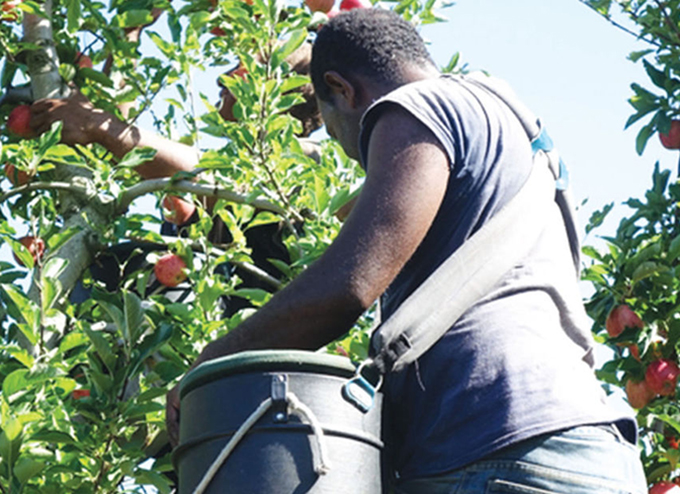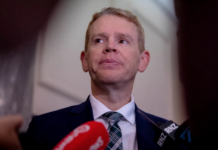
ANALYSIS: By Joey Tau in Suva
Vanuatu is the latest Melanesian state to express reservations on the Pacific Agreement on Closer Economic Relations (PACER) agreement between members of the Pacific Islands Forum (the Forum Island Countries plus Australia and New Zealand), PACER-Plus.
The Vanuatu government announced last week that it will not sign the PACER Plus agreement and has decided to pull out of the signing tomorrow after its Council of Ministers’ called for more time to assess the benefits of the regional agreement for Vanuatu.
The decision by Vanuatu comes as no surprise as other Melanesian states, including Papua New Guinea, decided last year that it would not be taking part in the PACER-Plus negotiations, nor would it sign the finalised instruments.
Fiji later followed with threats that it would not sign the agreement as there was lack of flexibility from Australia and New Zealand.
Vanuatu shares similar concerns with both PNG and Fiji on possible loss from such an agreement, the need for an impact assessment, and the protection of infant industries.
PNG walks out early
When PNG sent warning bells in March last year that the PACER-Plus negotiations looked shaky and needed more time for consultation, it had a list of concerns and was ready to talk with both Australia and New Zealand.
But it was during that time that PNG had reached a resolution to withdraw from PACER-Plus.
In August, Prime Minister Peter O’Neill announced the country would disengage with regional negotiations, stressing that based on assessments PACER-Plus would be a disadvantage for its economy.
With attempts by Australia and New Zealand to persuade PNG to return to the regional trade talks, O’Neill stood firm on the country’s assessments, saying, “PNG will not be signing as it would be a net-loss to the PNG economy.”
PNG’s Trade Minister Richard Maru nailed the country’s position when pressured at bilateral meetings, adding that any trade agreement with Australia, New Zealand and other Pacific Islands, that reduced employment, and “killed” the manufacturing industry by removing tariffs and duty would not be acceptable in PNG.
“How many times will I make it clear to Australia and New Zealand that Papua New Guinea will not sign the Pacer-Plus agreement that seeks to advance Australia and New Zealand’s commercial interest at the expense of our national interest” Maru said.
“We are not signing PACER-Plus in its current form because the move to remove tariff and duty will kill our manufacturing sector.”
The furious Maru later called out the Australian government, saying “we will not sign and we will not listen to anyone. I’ve made that very clear … my message to Australia is stop sending any of your agents to PNG and start talking about a comprehensive partnership agreement with us.”
Fiji left unhappy
Last September, Fiji threatened to walk away from the regional trade agreement negotiation after its concerns were not addressed.
The country’s Trade Minister, Faiyaz Koya, said there was a lack of flexibility from Australia and New Zealand on Fiji and Pacific Islands key concerns.
During a RNZ international interview, Minister Koya emphasised that Fiji wanted further negotiations on two very critical issues, on infant industry protection and the “most-favoured-nation” clause that would have an implication for Fiji’s development aspirations.
Fiji’s call for more time to negotiate its concerns was ignored when the Office of the Chief Trade Advisor (OCTA) hastened the process and concluded negotiations in April in Australia, thus leaving Fiji out of the final talks.
The April conclusion also ignored Fiji’s appeal for a deferral due to conflicting schedules.
“Fiji hadn’t opted out of PACER-Plus, we remain committed … but we were excluded from the Brisbane meeting,” said Minister Koya.
Final negotiations criticised
After eight years of negotiations, PACER-Plus was concluded in Australia in April this year. This regional trade agreement is said to enhance the economic development of Pacific island countries through greater regional trade and economic integration with Australia and New Zealand.
But it has been severely criticised as burdensome on Pacific bureaucracies and undermining Pacific Island countries’ ability to support their local economies.
This week the 13 countries participating will sign the agreement in Nuku’alofa, Tonga.
The fear is that 11 island states will agree and sign a poorly designed agreement locking in Australia and New Zealand as winners.
What has been concluded is a deal with no guaranties of benefits from labour mobility and only a promise of 5 years of aid money, but undermines the ability of the Pacific to determine for themselves what development is and the tools to pursue Pacific development aspirations.
The 13 countries participating in PACER-Plus are Australia, Cook Islands, Federated States of Micronesia, Kiribati, Nauru, New Zealand, Niue, Palau, Republic of Marshall Islands, Samoa, Solomon Islands, Tonga and Tuvalu.
Realities for Solomon Islands
The Solomon Islands has a choice to decide whether or not it will sign on to PACER-Plus.
It would have similar concerns expressed by its fellow Melanesian comrades. But it is a choice between letting Australia and New Zealand impose their development vision via PACER-Plus or the opportunity to have a development that reflects the reality and possibilities in the Solomon Islands.
A report by Solomon Islands to the World Trade Organisation (WTO) in November last year summed up the economic impact under PACER-Plus as “increased imports from developed country partners are likely to exceed the modest increase in Solomon Islands’ exports, due to the extent of liberalisation demanded by the aforementioned parties and limited productive capacity in the domestic economy. The short term adjustment and implementation costs are likely to impose significant economic and political pressures.”
Australia is currently the number one source of imports for the Solomon Islands, a situation that will be further entrenched under PACER-Plus. The increase in imports from Australia and New Zealand will really be felt when Solomon Islands is set to reduce import taxes on at least 80 percent of imports from these countries.
While this won’t come into effect until the Solomon Islands graduates from Least-Developed Country status – if it passes the 2018 evaluation then graduation will be likely in 2021 – resulting in a loss of US$11million from government revenue.
Solomon Islands had recommended to the WTO that it saw itself aligning with the Association of South-East Asian Nations (ASEAN) in preference to Australia and New Zealand in the future, and PACER-Plus could have them on the wrong path if they sign up.
PACER-Plus will have a serious impact on the ability for Solomon Islanders to determine for themselves their own development future.
Joey Tau is media and campaigns officer of the Suva-based Pacific Network on Globalisation.












































